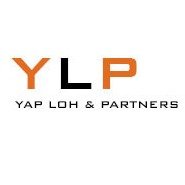Best Information Technology Lawyers in Raffles Place
Share your needs with us, get contacted by law firms.
Free. Takes 2 min.
List of the best lawyers in Raffles Place, Singapore
Singapore Information Technology Legal Articles
Browse our 1 legal article about Information Technology in Singapore written by expert lawyers.
- Personal Data Protection Act (PDPA): Introduction to PDPA
- In recent years, the Personal Data Protection Act 2012 (“PDPA”) of Singapore has been a trending topic for discussion, especially due to the trend of storing valuable personal data online. The PDPA is crucial as it protects the personal data for individuals while recognising the need for organisations to “collect,... Read more →
About Information Technology Law in Raffles Place, Singapore
The field of Information Technology (IT) law in Raffles Place, Singapore is continually evolving and is closely intertwined with various aspects of online business, software development, data protection, and cybersecurity. Professional IT Lawyers are adept at handling issues related to intellectual property rights, information privacy, contractual agreements, and legal disputes related to IT services and products.
Why You May Need a Lawyer
Securing the services of an IT lawyer can be useful in numerous circumstances. You may need legal assistance when drafting IT contracts, dealing with data breaches, managing intellectual property rights related to software and digital content, facing defamation or cyberbullying online, or trying to comply with local and international regulatory protocols in technology and data. These legal professionals can provide valuable guidance in navigation through the complex and rapidly changing landscape of IT law.
Local Laws Overview
Key local laws in Raffles Place, Singapore affecting the IT world include the Personal Data Protection Act (PDPA) which governs the collection, usage and disclosure of personal data. There’s the Copyright Act that protects creative works such as software, the Computer Misuse Act addressing cybersecurity threats, and the Electronic Transactions Act which oversees the validity of digital signatures and contracts. Despite these regulations, an expert’s insight is incredibly important considering the dynamic nature of this landscape.
Frequently Asked Questions
What do IT lawyers do?
IT lawyers provide expert advice on legal issues related to the use, creation, or application of technology. This may include software licensing, data protection and privacy, intellectual property, and cybercrime among other issues.
Are electronic contracts legal in Singapore?
Yes, under the Electronic Transactions Act, electronic contracts are recognized as legally binding agreements in Singapore provided all the essential conditions have been met.
How does Singapore’s law protect against online harassment or cyberbullying?
Under the Protection from Harassment Act (POHA), online harassment or cyberbullying are considered illegal. Offenders may be prosecuted and if found guilty, they may face penalties including fines and imprisonment.
How is my personal data protected in Singapore?
The Personal Data Protection Act (PDPA) typically protects your personal data. This law sets out rules governing the collection, use, disclosure and care of personal data by organizations.
Can I patent software in Singapore?
Software may potentially be patented in Singapore if it constitutes a technological innovation, which brings about a technical effect or solves a technical problem.
Additional Resources
Additional resources include the Personal Data Protection Commission (PDPC), the Intellectual Property Office of Singapore (IPOS), and Infocomm Media Development Authority (IMDA). These organizations offer guidelines, resources and useful insights on information technology laws in Singapore.
Next Steps
If you require legal assistance in the field of Information Technology, it is recommended to consult with a professional IT lawyer. These experts can provide tailored advice specific to your situation and help you navigate the complexities of this legal field.
Lawzana helps you find the best lawyers and law firms in Raffles Place through a curated and pre-screened list of qualified legal professionals. Our platform offers rankings and detailed profiles of attorneys and law firms, allowing you to compare based on practice areas, including Information Technology, experience, and client feedback.
Each profile includes a description of the firm's areas of practice, client reviews, team members and partners, year of establishment, spoken languages, office locations, contact information, social media presence, and any published articles or resources. Most firms on our platform speak English and are experienced in both local and international legal matters.
Get a quote from top-rated law firms in Raffles Place, Singapore — quickly, securely, and without unnecessary hassle.
Disclaimer:
The information provided on this page is for general informational purposes only and does not constitute legal advice. While we strive to ensure the accuracy and relevance of the content, legal information may change over time, and interpretations of the law can vary. You should always consult with a qualified legal professional for advice specific to your situation.
We disclaim all liability for actions taken or not taken based on the content of this page. If you believe any information is incorrect or outdated, please contact us, and we will review and update it where appropriate.








